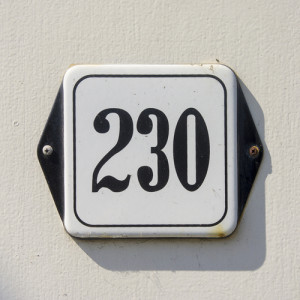Ripoff Report Gets Easy Section 230 Win In Third Circuit–Obado v. Magedson

Photo credit: enameled house number two hundred and thirty // ShutterStock
The Third Circuit’s opinion washes out some of the case’s detail, making it a little less interesting. This partially reflects that the legal questions were so easy, the case only warranted a non-precedential opinion. The court summarizes its key ruling:
The District Court correctly determined that all of the defendants were alleged by Obado to be internet host providers who provided an interactive computer service, as defined by the CDA; that the allegedly actionable content originated from other information content providers, namely Mama Duka and Diop Kamau; and that the defendants were treated in the second amended complaint as publishers of the allegedly actionable content. When these conditions are met, the CDA’s immunity applies.
As I’ve said before, there should be only one and only one defendant for problematic online content–the content originator. Everyone else should get Section 230 immunity.
The court then quickly dismissed Obado’s other arguments:
* “Obado’s allegation that the defendants manipulated search engines to maximize search results relating to the alleged defamatory content does not affect their immunity from suit.”
* “defendants also cannot be held liable for failing to withdraw any of the alleged defamatory statements or for failing to make Obado’s “rebuttal statements” more widely available.”
* the promissory estoppel workaround failed: “An email from an interactive computer service provider indicating that a complaint by a defamed user will be investigated is not a clear and definite promise to actually remove the content”
* Obado’s arguments that the content at issue wasn’t First Amendment-protected also failed: “the CDA is meant to shield interactive computer service providers from liability for unprotected otherwise actionable speech originating from other information content providers, it applies regardless of whether the third-party speech itself is unlawful.”
Too bad the opinion wasn’t precedential. The court swats away several common arguments made by plaintiffs trying to work around Section 230, and it would have been helpful to establish these legal propositions as Third Circuit law. Perhaps they’ll get another chance to do so in the Mezzacappa v. O’Hare case.
Case citation: Obado v. Magedson, 2015 WL 2167683 (3d Cir. May 11, 2015).
